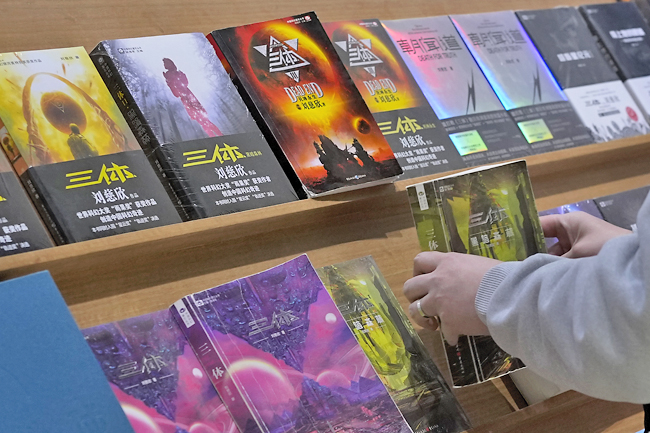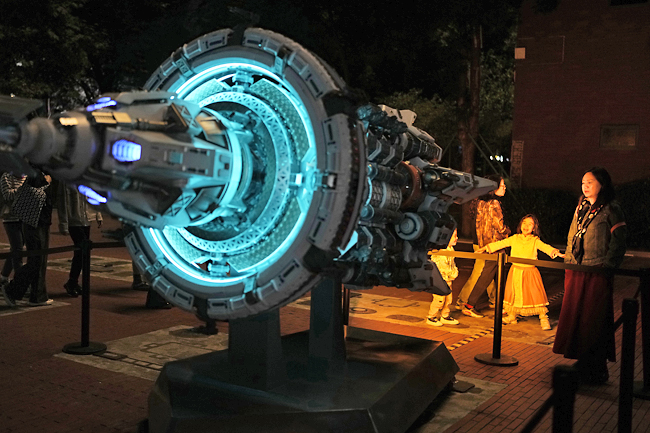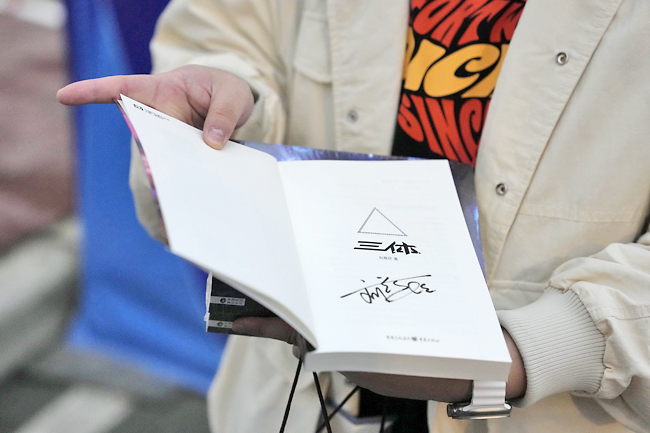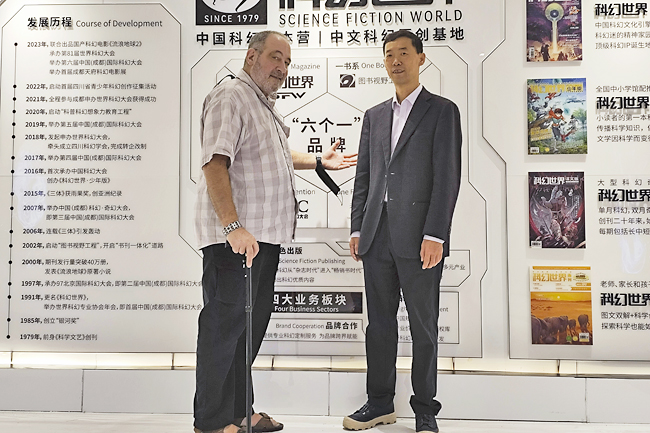How Chinese science fiction went from underground magazines to a big-budget Netflix show
CHENGDU, CHINA (AP) – For a few days in October 2023, the capital of the science fiction world was Chengdu, China. Fans travelled from around the world as Worldcon, sci-fi‘s biggest annual event, was held in the country for the first time.
It was a moment when Chinese and international fans could get together to celebrate the arts. For Chinese fans like Tao Bolin, an influencer who flew from the southern province of Guangdong for the event, it felt like the world finally wanted to read Chinese literature.
Fans and authors mingled in a brand new Science Fiction Museum, designed by the prestigious Zaha Hadid Architects in the shape of a huge steel starburst over a lake.
Author Liu Cixin gained an international following including fans like Barack Obama and Mark Zuckerberg.
With a big-budget Netflix adaptation of his The Three-Body Problem set to drop in March, produced by the same showrunners as Game of Thrones, Chinese sci-fi could reach its biggest audience yet.
Getting there took decades of work by dedicated authors, editors and cultural bureaucrats who believed that science fiction could bring people together.
“Sci-fi has always been a bridge between different cultures and countries,” said editor-in-chief Yao Haijun of Science Fiction World, China’s oldest sci-fi magazine. “Every author can have their own vision of the future, and they can coexist and be respected even if they clash.”



A SMALL STEP FOR A PROVINCIAL BUREAUCRAT
Chinese sci-fi’s journey abroad started with another convention in Chengdu three decades ago, but was nearly derailed that one before it could get off the ground.
Science Fiction World planned to host a writers’ conference in the city, known for its panda sanctuary and countercultural bend, in 1991. But as news of the crackdown on protesters in Beijing’s Tiananmen Square circled the globe in 1989, foreign speakers were dropping out.
The magazine sent a small delegation to Worldcon 1990, hosted in The Hague, to save the conference.
Its leader was English translator Shen Zaiwang in Sichuan province’s Foreign Affairs Department who fell in love with sci-fi as a child after reading Jules Verne books like Twenty Thousand Leagues Under the Sea. He packed instant noodles for the weekslong train journey across China and the fragmenting Soviet Union.
In The Hague, Shen and former magazine editor Yang Xiao used toy pandas and postcards of Chengdu to make the case that the city – more than 1,800 kilometres from Beijing – was friendly and safe to visit.
“We tried to introduce our province as a safe place, and that the people in Sichuan really hope the foreign science fiction writers can come and have a look and encourage Chinese young people to read more science fiction novels,” Shen said.
In the end, a dozen foreign authors attended the conference. It was a small start, but it was more than anyone could have imagined a few years earlier.

A GIANT LEAP FOR THE GENRE
The genre flourished in China in the first half of the 20th Century, fuelled by an interest in new technology and translated stories from abroad. Sci-fi saw a resurgence in the late 1970s and early 1980s.
Authors like Zheng Wenguang and Ye Yonglie wrote stories about travelling into space, while China’s nascent space programme launched its first satellites into orbit. Regional magazines such as Chengdu’s Science Fiction World mushroomed.
The magazine set out to change negative public perceptions about sci-fi. In 1997, six years after the Chengdu conference, it organised another international event in Beijing, headlined by American and Russian astronauts.
The conference got attention in the Chinese press, giving sci-fi a cool new aura of innovation, exploration and imagination, Yao said.





